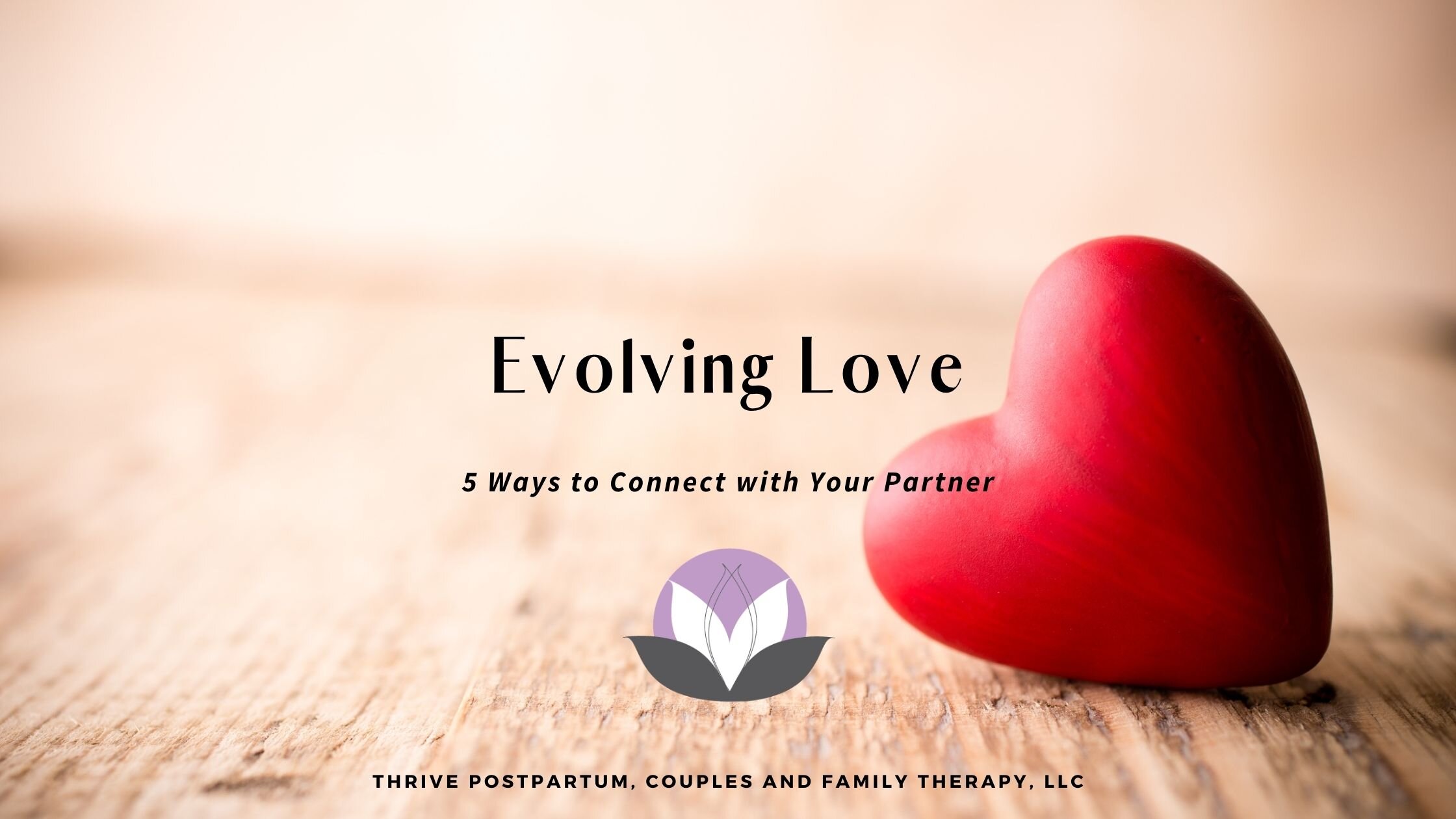Couples Therapy
Would You Like A Relationship With Greater Depth?
Do you and your partner have a difficult time communicating without conversations turning into arguments or criticism? Is there an emotional disconnection or a lack of intimacy in your relationship that makes one of you feel angry, lonely, or rejected? Maybe the revelation of an affair or similar betrayal is keeping you from being able to trust your partner again, especially if there are children involved or the behavior is part of a pattern.
On the other hand, maybe you are looking for some premarital guidance to help head off common relationship problems before they ever occur. Or it could be that you are doing just fine as a couple, but you want to know how you can deepen your connection and perhaps take the relationship to the next level.
Co-existing with another unique individual can create a host of problematic challenges. You may feel undervalued or frustrated because your partner isn’t more responsible or present (especially after the birth of a newborn). Or the demands of pursuing a career or raising a family may have left you feeling like your intimate relationship has evolved into more of a business partnership. Similarly, maybe you have both naturally drifted apart over time, and you want to learn how to have fun and be friends again.
At Thrive Postpartum Couples and Families, we understand that at the end of the day, you just want to know that your partner has your back. Fortunately, working together as a team, you and your partner can learn to cultivate greater mutual respect, understanding, and compassion that can deepen and repair your relationship.
Conflict In Relationships Is Perfectly Natural
Just because you may run into challenges in your relationship doesn’t necessarily mean that there is something wrong. In fact, conflict can be an integral part of a healthy relationship because, if managed correctly, it indicates that both partners are asserting themselves and negotiating. Unfortunately, few of us were ever taught how to communicate effectively or set boundaries so that conflict can serve a healthy purpose. Instead, we typically defer to acts of self-preservation by withdrawing or lashing out, which leaves one person feeling like their needs are not getting met while the other feels like nothing they do is enough.
Moreover, social media and popular culture fuel the false notion that love is supposed to be effortless, like a fairytale. We grow up believing that our partners are supposed to save us, protect us, provide for us, care for us, and be our best friend. That’s why people often refer to their partners as their “rock.” However, as individuals, we all deal with personal issues that make it impossible to always fulfill those lofty expectations. Everyone comes with some sort of baggage and learning how to love your partner for better or worse—through the good, the bad, and the ugly—takes work.
Fortunately, our specially trained couples therapists can teach you to use evidence-based tools and strategies to increase your fondness, admiration, and respect for one another. In time you can learn new ways of responding to conflict and challenges that strengthen your intimate connection.
Couples Counseling Can Revive and Deepen Your Relationship
Communication frequently plays a large part in a relationship’s health. But working with a therapist can help uncover hidden factors, beyond communication issues, that may be exacerbating some of the challenges you’re facing. Rest assured, couples therapy isn’t solely focused on resolving conflict; it’s also about putting joy back into the relationship. Using empirically-driven treatment methods to get to the core of your relationship issues, we can help you renew your friendship regardless of your situation.
We offer a safe, compassionate space in which you can talk with your therapist openly and without fear of judgment. However, rather than simply talking about problems and treating symptoms, our approach to couples counseling focuses on really getting underneath your relationship issues to understand and overcome what is fueling conflict. So, we’ll begin with a comprehensive assessment that takes a deep look into various aspects of your relationship.
During the first in-person session, your therapist will meet with you as a couple to explore your relationship history and get a full picture of the dynamics of your partnership. In our second and third sessions, we will meet individually to candidly discuss family history, past relationships, hopes for therapy—anything that might inform the healing process or initially feel too sensitive to discuss in front of your partner. Then, we will continue to meet with you as a couple, focusing on a practical treatment strategy. Together, we’ll challenge unhelpful behaviors and thought patterns that are driving you apart while strengthening the glue that is holding you together.
Our therapists primarily use two powerful interventions often considered the gold standard in couples counseling. The Gottman Method, which is backed by over 40 years’ worth of research, works on a more practical level. This structured treatment model focuses on building skills, creating awareness, increasing emotional intelligence, and cultivating empathy. Emotionally Focused Therapy (EFT) looks at how emotional attachments formed with caregivers in our early years influence relational behaviors as adults and, ultimately, guide our lives.
One of our goals is to help you avoid “Gottman’s Four Horsemen” of relationships: Criticism, Contempt, Defensiveness, and Stonewalling. By recognizing these four pitfalls, you can change old, unhelpful behavior patterns and find new, more productive ways of dealing with future challenges on your own. Whether the goal is learning how to communicate better, resolve conflict, share responsibilities, or enhance emotional and physical intimacy—we’ll draw up blueprints for how you can continue to improve your relationship on your own terms.
There are so many moving parts and variables when it comes to relationships, especially if children are involved. But you don’t have to figure it all out on your own. Rather than arguing and turning away from one another, you can learn to understand and even celebrate the differences that make each of you unique. By attuning to each other’s needs, pains, and joys, you and your partner can enjoy a relationship with greater transparency, respect, and intimacy.
Perhaps you are considering couples counseling but still have some concerns…
I’m ready but my partner isn’t.
That’s not an uncommon occurrence, but even one person can make a difference in a relationship. That’s why we are pleased to also offer individual relationship counseling. Simply understanding who you are, what your role is in the partnership, and what you can do on your own to be a better person can have positive repercussions throughout your relationship. In time, changes in your behaviors alone may have a motivating impact on your partner that convinces them to give therapy a shot.
I’m afraid that you will take sides and team up on me.
I know that it can be difficult to open up to a stranger, especially about relationships. But therapy can help you listen to each other and understand where each of you is coming from so that you can meet each other’s needs without compromising your own. Although exploring the past can be helpful, working with a couples counselor is about healing and moving forward from this point in time. The idea is not to blame anyone or rehash every single misstep either of you made in the last 20 years. Rather, we want to help you understand the dynamics that each of you brings to the relationship and how you can both make improvements together.
I feel like my partner is the one who needs couples therapy.
It may be cliché, but it truly does take two to tango. Relationships are very much like a dance—one in which each person can have a completely different rhythm compared to their partner’s. Without knowing how to change up the steps and sync up, it can be easy to stumble. Our goal is to teach you new moves, a new dance that blends aspects of each partner’s personality harmoniously.
But the first step is to figure out what is really going on beneath the surface, even if that entails resolving deeper, more ingrained issues. Regardless of your circumstances, our couples therapists can offer you answers and solutions.
The Gottman Relationship Survey
By incorporating the Gottman Relationship Survey into your couples therapy journey, you can expedite the process of improving your relationship, fostering greater understanding, and working toward a more fulfilling partnership in a shorter time frame.
The Gottman Relationship Survey is a tool developed by Drs. John and Julie Gottman, renowned researchers and therapists in the field of couples therapy and relationships. It is designed to assess various aspects of a couple's relationship, including their strengths and areas of concern. The survey consists of a series of questions that couples answer to provide insights into their relationship dynamics.
Here's how the Gottman Relationship Survey can help with couples therapy:
Assessment: The survey serves as an initial assessment tool to gather information about the couple's relationship. It explores different domains, such as communication, emotional connection, conflict resolution, and intimacy.
Identifying Strengths: The survey can help identify the strengths within the relationship, highlighting areas where the couple communicates well, shares intimacy, and exhibits positive dynamics. Recognizing these strengths can be empowering and reassuring for couples.
Highlighting Challenges: It also pinpoints areas of concern or potential conflict within the relationship. These may include issues like poor communication patterns, unresolved conflicts, or emotional distance. Identifying these challenges is crucial for targeting areas that need improvement.
Personalized Treatment: Based on the survey results, couples therapists can tailor their approach to address the specific issues and concerns identified. This allows for a more personalized and effective treatment plan.
Goal Setting: The survey can help couples and therapists set clear goals for therapy. With a better understanding of the relationship dynamics and areas that need improvement, couples can work together to establish achievable objectives.
Progress Monitoring: Throughout the course of therapy, the survey can be used as a progress-monitoring tool. Couples can retake the survey at various intervals to assess changes in their relationship, providing concrete evidence of their growth and improvement.
Communication Tool: The process of completing the survey can foster communication between partners. It encourages them to discuss their feelings, experiences, and perceptions of the relationship, which can be valuable for improving communication skills.
Validation and Empowerment: The survey results can validate couples' experiences by acknowledging both their strengths and challenges. It can empower couples to take an active role in their therapy and work together toward a healthier relationship.
Evidence-Based Approach: The Gottman Relationship Survey is based on extensive research conducted by the Gottmans, making it an evidence-based tool that aligns with their research on relationship dynamics and outcomes.
Overall, the Gottman Relationship Survey is a valuable tool in couples therapy because it provides a structured and systematic way to assess, understand, and address the unique dynamics of each couple's relationship. It helps therapists and couples gain insights, set goals, and work collaboratively to enhance their relationship's health and well-being.
Love Is Something You Can Grow
Let us help you revive and restore the fulfilling connection you and your partner once had.
“You don’t find “happily ever after.” You create it.”
















